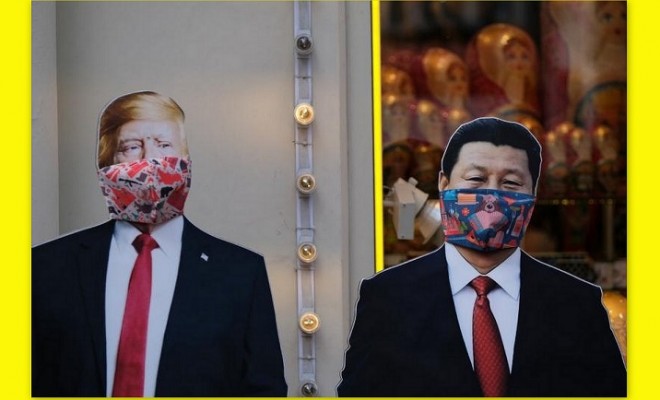
Don’t Let Great Powers Carve Up the World
Spheres of Influence Are Unnecessary and Dangerous
What a difference two decades make. In the early years of this century, the world appeared to be moving toward a single, seamless order under U.S. leadership. Today the world is fragmenting, and authoritarian challengers, led by China and Russia, are chipping away at American influence in East Asia, eastern Europe, and the Middle East. In its 2002 National Security Strategy, the George W. Bush administration envisioned the end of great-power rivalries. In 2020, the question is how great powers can navigate their rivalries without stumbling into war.
Writing in Foreign Affairs (“The New Spheres of Influence,” March/April 2020), Graham Allison offers a road map for this new environment: the United States should accept the return of “spheres of influence” and effectively let China and Russia dominate swaths of their respective geopolitical neighborhoods. Doing so, Allison contends, is actually in keeping with the United States’ best diplomatic traditions, considering that Washington tolerated a Soviet sphere of influence in eastern Europe during the Cold War. Reviving that tradition is necessary, simply because the United States no longer has the military and economic dominance to deny China and Russia their geopolitical due. And it is desirable, because mutually accepted spheres of influence can promote stability and peace in a more rivalrous world.
Allison’s argument is alluring but wrong. In truth, the United States has resisted the creation of rival spheres of influence for most of its history, even as it has worked assiduously to build its own. Ceding ground to China and Russia today would be not a recipe for stability but a blueprint for coercion and conflict, and it would weaken the United States’ geopolitical hand vis-à-vis its rivals. Nor is a return to spheres of influence foreordained—Washington still has the power to prevent Beijing and Moscow from dominating their regions, so long as it rejects Allison’s advice to cut loose its vulnerable frontline allies. A tougher, more competitive world is unavoidable. A far more dangerous world, divided into competing superpower fiefdoms, is not.
Συνέχεια ανάγνωσης εδώ
Πηγή: foreignaffairs.com




